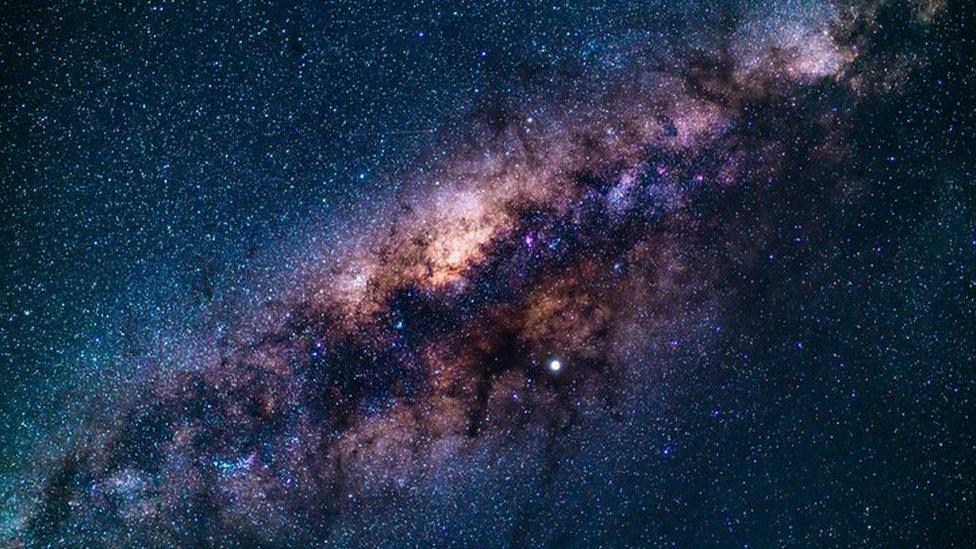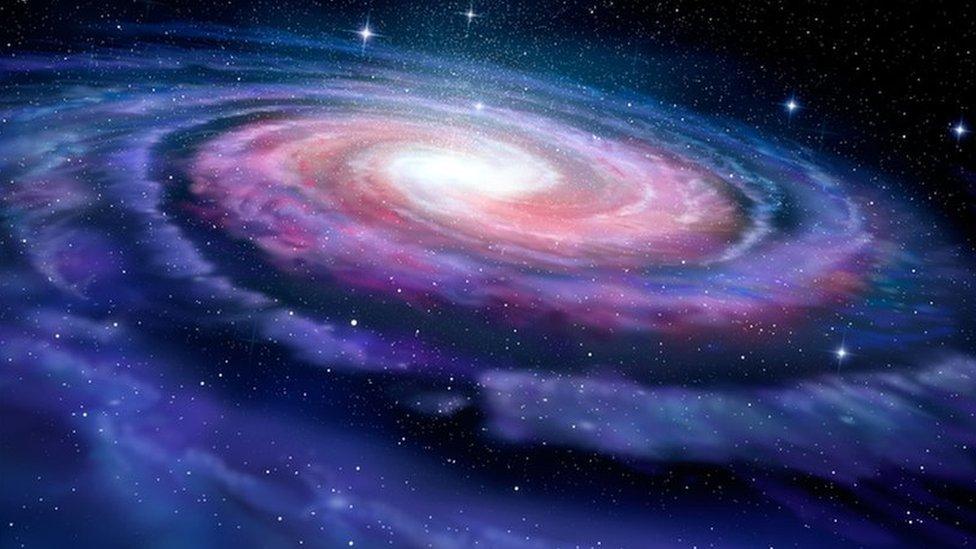Milky Way: Scientists discover galaxy less heavy than previously thought
- Published
- comments

Scientists have discovered that our galaxy is not as big as we had thought!
A new study suggests that the mass of the Milky Way might be up to five times lower than previous estimates.
According to experts, the findings suggest that we're missing a large amount of dark matter.
Researchers say the discovery could change our understanding of our galaxy's 13.6 billion year history.
What have scientists found?

An international team led by astronomers from the Paris Observatory looked at the latest data from the Gaia satellite.
Gaia is a European Space Agency (ESA) satellite, launched in 2013, whose mission is to chart a 3D map of the Milky Way to better our understanding of how our galaxy was formed.
Astronomers estimate that the Milky Way is a collection of about 100 thousand million stars - that's 100,000,000,000 stars!
Scientists used the Gaia space telescope data to look at the speed and distance of stars it had observed and astronomers were then able to measure how fast our galaxy rotates.
Our solar system lies in one of the Milky Way's four spiral arms, nearly two thirds of the way from the centre.
They were then able to work out that the total mass of the Milky Way is estimated to only be only 200 hundred billion times that of the Sun.
That's around four to five times lower than previous estimates.
They also discovered that stars at the edge of the galaxy seemed to be orbiting more slowly than expected, which suggests that we're missing some dark matter!
Dark matter is an unidentified form of matter which makes up a large portion of the total mass of the universe.
It's invisible and undetectable and scientists only know it exists because it has gravity that affects objects nearby!
Scientists aren't yet sure yet why the galaxy appears less heavy than expected but they are going to look into it.
They say one possible explanation could be that something that happened in the Milky Way's long 13.6 billion year history that we don't know about yet, such as an ancient collision with another galaxy.
